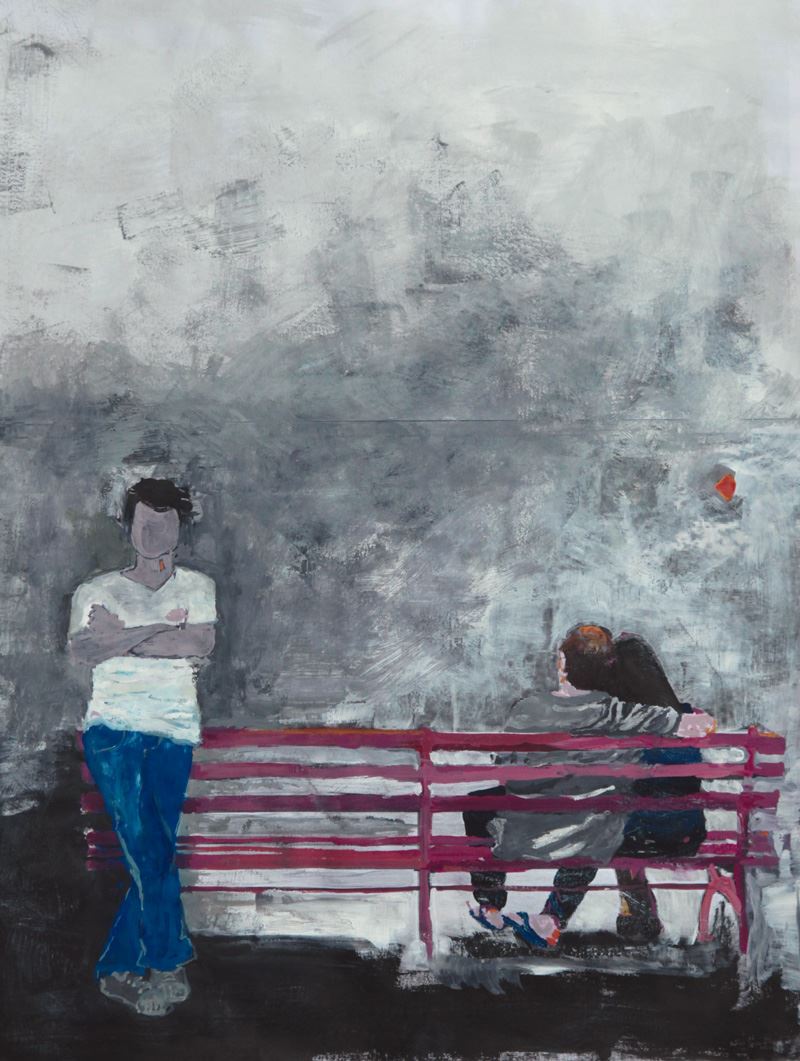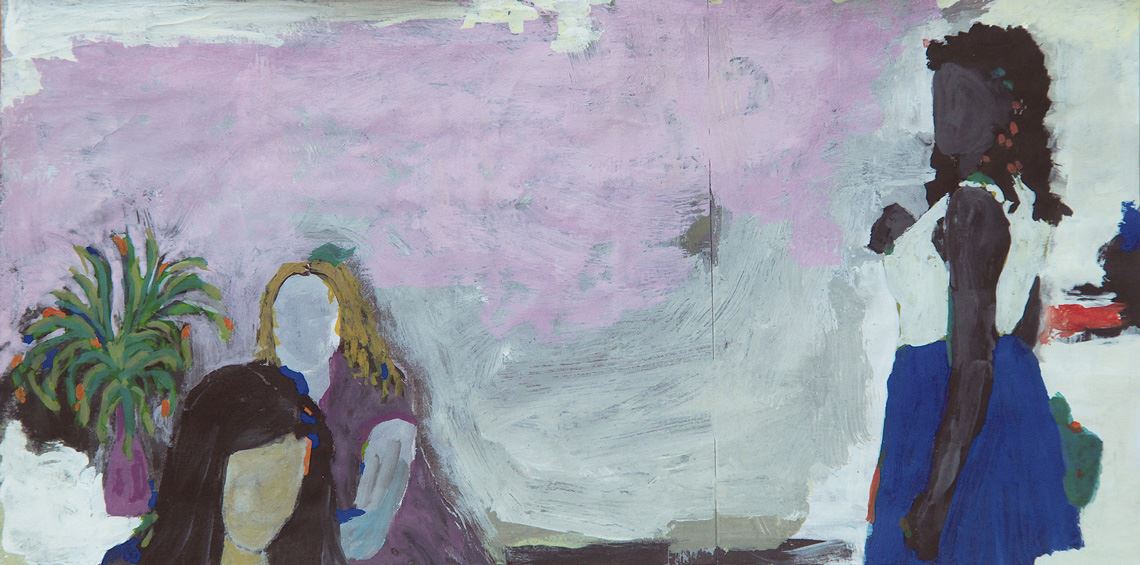Men and women often experience jealousy differently. For most men, there is nothing worse than the idea of their partner being sexually involved with someone else. For women, however, a one-night stand is not usually their biggest fear: they are more uncomfortable with the idea of their other half creating a romantic bond with another person. This tends to be true among heterosexual couples, according to evolutionary psychology studies.
But does the story change when it comes to homosexuals who seek relationships with individuals of the same sex or bisexual people who have emotional connections to people of both sexes? This was the question asked by a study led by Jaroslava Varella Valentova, an evolutionary psychologist from the Institute of Psychology at the University of São Paulo (IP-USP), which included collaborations with the University of Coimbra, Portugal, and the University of Santiago, Chile. The research concluded that regardless of sexual orientation, men and women feel more jealous of love rivals of the same sex. The study was published in the scientific journal Archives of Sexual Behavior in July this year.
The group invited straight, bisexual, and homosexual men and women—all cisgender, meaning they identify with the biological sex they were born with—from three countries to test their level of romantic jealousy. In total, 1,744 people (1,328 women and 416 men) aged 17 to 51 participated. Roughly 55% of the participants were Brazilian, 27% Chilean, and 18% Portuguese. They filled out an online questionnaire that asked them to imagine scenarios in which their partners had certain experiences outside their relationship. Answers were given on a numerical scale, quantifying the degree of jealousy felt by the participants in different situations.
“Jealousy only exists when analyzing a relationship challenged by a rival,” explains Valentova. “The feeling is stronger when the competition creates a risk of losing the chance to reproduce.” Born in the Czech Republic, she has been a professor at USP since 2015 and studies human sexuality from an evolutionary perspective. Her approach interprets certain emotions and behaviors, including jealousy, as having the greater—but not sole—purpose of ensuring individual reproductive success through the bearing of offspring.
In the most monogamous species, such as humans, there is competition for both the formation and maintenance of loving partnerships. Because newborns rely on their parents and maintaining a partnership is important to reproduction, it is theorized that some emotions, such as jealousy, have evolved to help protect relationships against love rivals. Other lines of research studied by different branches of psychology suggest jealousy is primarily caused by sociocultural factors, such as where an individual is from, their religion, and level of education.
In the study led by Valentova, volunteers answered a questionnaire that proposed four situations. For example, they were asked what would make them more upset or cause more suffering: if their partner slept with someone else without getting emotionally attached, or if they created a romantic connection with another man or woman but without having sex. They were also asked which of these situations would be “harder to forgive.” Bisexual participants responded twice—once for male partners and once for female partners. All were asked about rivals of both sexes.
As previously indicated by other studies, straight men were shown to be the most jealous when it came to sex outside a relationship. Bisexual men, however, appeared to be just as jealous as straight men when asked about female partners, but less so about male partners. Heterosexual women were found to feel more jealous of the idea of their partners being romantically involved with someone else.
But what exactly does it mean to be “romantically involved” with a person? “The study design defines it as engaging in a long-term relationship that goes beyond sharing a bed with another person,” explains Valentova. Longer-term relationships usually involve the complete package: feelings of romantic love, commitment, desire to stay together, sexual exclusivity, and according to the researcher, sometimes jealousy.
The results of the study also showed that jealousy is more focused on rivals of the same sex. Men tend to compare and compete more with other men, and women with other women.
For both straight and bisexual women, the threat of a male rival becoming romantically involved with their male partner seemed small. Bisexual women, the study suggests, are much more concerned about a female partner becoming romantically involved with another man, which could lead to pregnancy and damage the relationship. Bisexual men, meanwhile, worry more about their partner creating romantic ties with a woman.
But why is this the case with bisexual people if in theory they are open to long-term relationships with partners of both sexes? It is partly related, according to the authors of the paper, to the evolutionary process. From this perspective, men tend to see it as a greater risk to invest time and resources in partners who are sexually involved with other men and could thus have children who will not be theirs. Biologically speaking, it is more beneficial for a man to raise a child that is his own rather than contributing his efforts to raising a child who does not share his genes.
 Aline van Langendonck
Aline van Langendonck
Women, on the other hand, are more concerned about emotional involvement outside of the relationship because it could transfer resources, protection, and parental care from their partner to a third person. The study concludes that emotional jealousy is higher among women at least partly because they have to invest in reproduction and caring for their offspring—since they carry the babies for nine months. This makes women more concerned about their partner’s dedication to the relationship.
“We inherit propensities to develop cognitive capacities that involve flexible and context-dependent decision-making rules that evolved in our species and were selectively originated due to recurrence of the same ancestral adaptive challenge,” says evolutionary biologist and psychologist Marco Antonio Correa Varella, who is currently on a postdoctoral fellowship at IP-USP’s Department of Experimental Psychology and is a coauthor of the article. “Our study suggests that sexual jealousy is not essentially a man thing and emotional jealousy is not necessarily a woman thing, rather both sexes have the capacity to feel both types of jealousy.”
The original aim of the study when the data was collected from volunteers in Brazil, Chile, and Portugal was to identify potential cultural differences in the perception of jealousy. The number of bisexual and homosexual Brazilian women met the sample size expectations, but the number of participants from these groups in Chile and Portugal was too small for statistically significant conclusions to be drawn about sociocultural influences on manifestations of jealousy in each country.
Another limitation or bias of the study was that the sample studied by Valentova, Varella, and colleagues was mostly linked to the university environment and had high purchasing power. People with a higher education level are also more likely to self-declare as non-heterosexual. The age range of the volunteers could be another limiting factor of the research. On average, the women were just over 24 years old, while the average age of the men was 26.
According to the researchers, it is difficult to find bisexual people who have had long-term relationships with both men and women. “There are still gaps in the literature on whether jealousy exists in short-term relationships across all possible variations of the sex of the individual, partner, and rival, and we still need to replicate our results in other regions of the world to see how universal our findings may be,” says the evolutionary psychologist.
Sociocognitive Models
Australian psychologist Richard De Visser of the School of Psychology at the University of Sussex, UK, believes Valentova’s study makes an important contribution to a field for which the scientific literature is still lacking. “The article is interesting because it discusses how jealousy may be influenced by evolutionary factors, but also by cultural aspects,” says De Visser, who did not participate in the USP study, in an email interview with Pesquisa FAPESP.
He points out, however, that conducting studies on jealousy under a primarily evolutionary approach could have some limitations. “Sociocognitive models of jealousy suggest that social factors, such as an individual’s background and culture, interact with evolutionary and biological aspects, and may be even more important influences,” the researcher says. “Explanations of jealousy based on evolutionary and sociocognitive models are seen as conflicting, but they should be seen as complementary.”
In a study involving more than 8,300 people between the ages of 16 and 69 carried out in Australia, De Visser and his group created a model with six variables related to perceptions of jealousy: biological sex, age, education, lifetime number of partners, relationship status, and potentially unfaithful attitudes. The results were published in The Journal of Sex Research in 2019. According to De Visser, a similar approach could also be an interesting way to measure emotional jealousy among homosexuals and bisexuals, who tend to be less concerned with reproduction.
From a biological standpoint, Valentova emphasizes that in addition to guaranteeing direct reproduction, sexuality contributes to other functions related to health, well-being, emotional bonding, and cooperation, which promote survival and benefit individuals of all sexual orientations. “The evolutionary perspective complements the other approaches and contributes to a broad understanding of human beings as biopsychosocial-cultural animals,” concludes Varella.
Scientific articles
VALENTOVA, J. V. et al. Jealousy is influenced by sex of the individual, their partner, and their rival. Archives of Sexual Behavior. july 20, 2022.
DE VISSER, R. et al. Romantic jealousy: A test of social cognitive and evolutionary models in a population-representative sample of adults. The Journal of Sex Research. vol. 57, no. 4, pp. 498–507. may 15, 2019.


